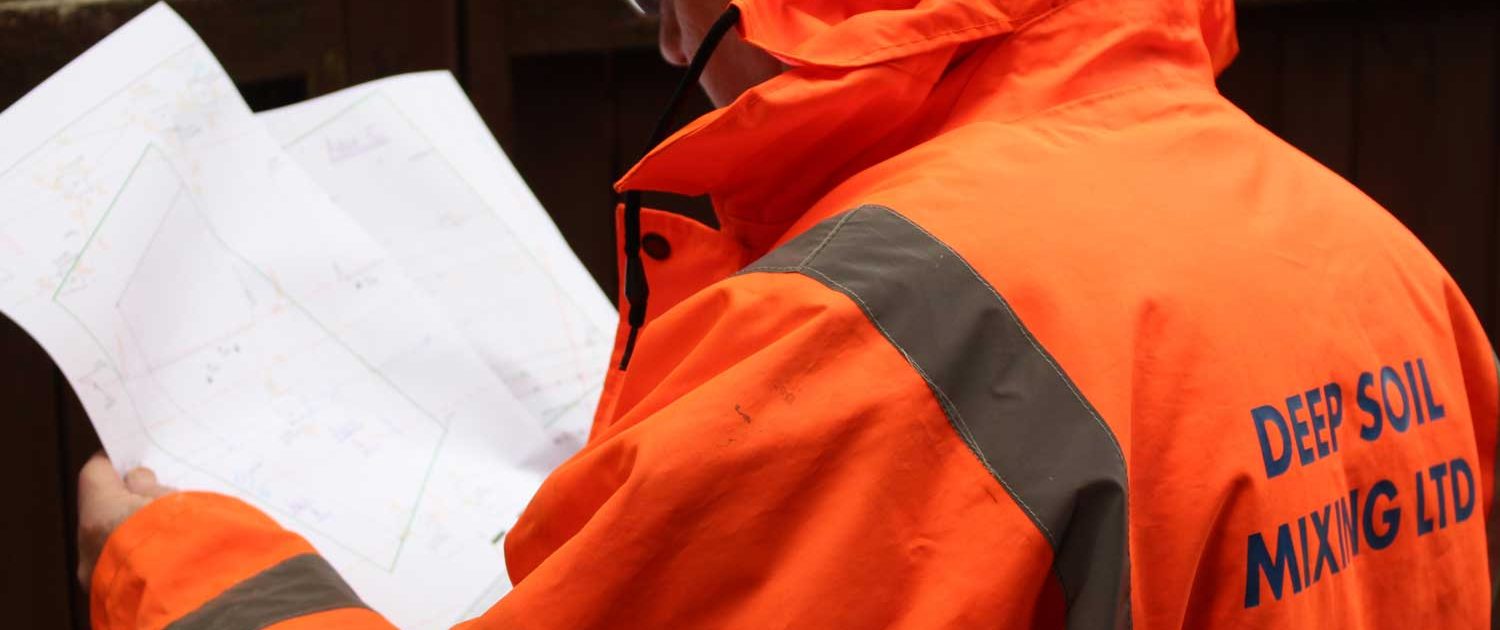DEEP SOIL MIXING CONSULTANCY
From concept to validation Deep Soil Mixing Ltd can work with you to get the best out of poor ground conditions. Projects being considered for soil mixing and soil stabilisation need advanced planning and a step by step approach. It is very important that sufficient time is allocated for design assessments and verification that the required soil properties can be achieved and assurance that appropriate equipment is available to carry out the works.
To ensure your project meets the standards required for a successful outcome, Deep Soil Mixing Ltd can provide all or a combination of the following:
- Testing of Soil Samples
- Initial Design and Project Assessment
- Appropriate Equipment
- Field Trials
- Construction Methods
- Validation Testing
1. TESTING OF SOIL SAMPLES
The testing process gives a clear indication of the extent to which the soil mixing process will improve the site conditions. Samples of typical site soils are taken to the laboratory and mixed with several binder mixes and then tested to show the potential properties of the new soils. Deep Soil Mixing Ltd take window samples to the full depth of the treatable soils, in order to get reliable representative samples of the existing site soils. This not only provides good soil samples, but also gives an indication of depth to founding layers. DSML works with a select number of laboratories able to provide this specialist testing service.
2. INITIAL DESIGN AND PROJECT ASSESSMENT
Deep Soil Mixing Ltd is able to assess the initial design, based on the initial seven day test results, with some certainty, enabling various design solutions to be considered and budget pricing for the project to be put in place. We work in partnership with experienced designers who can, if needed, provide designs and finite assessments for the project. They are also able to offer independent design clarification if warranties are required, provided this occurs at an early stage of the process.
4. FIELD TRIALS
Field trials may not always be practical. Alternatively, they can be crucial in determining the success of the process at an early stage and must therefore be considered. Deep Soil Mixing Ltd agree the aims and scope of a trial with the client/engineer/contractor several weeks before the main works are due to commence.
We plan trials so that they address all of the conditions anticipated in the main works, using the same plant selected for the main works. We collect sufficient data to be able to make well informed decisions about the process, ensuring the success of the project.
Field trials do have certain limitations, including:
- The cost of mobilising all of the plant for a one or two day operation
- The availability of plant that may well be working on other projects
- The accessibility or suitability of the trial area location
The factors that will influence the decision for field trials include:
- The size of the main project
- The scale of the monitoring process during the working operation
- The experience of the contractor to deal with this type of project
- The ability to correct problematic sections during the main works
5. CONSTRUCTION METHODS
Installation for deep soil mixing is generally covered under the ‘European Standard EN 14679: Execution of Special Geotechnical Works – Deep Mixing’ which provides the basis for the methodology.
All plant involved in soil mixing should have the ability to electronically store and record:
- The location where the work is to be carried out
- The quantity of binder being introduced into each m³ of soil
For vertical mixing it is important to monitor:
- The depth of the injection of the binder
- The mixing energy required to break up and mix various bands of soils
- The rotational speed
- The vertical penetration and removal speeds
- The feeding pressure and flow rate
DSML works with the plant suppliers to ensure that all monitoring processes are set up and ready to be implemented during the operation. We also ensure that the layout and content of the daily report sheets, which will be downloaded and presented to the client/engineer/contractor, are agreed prior to commencing works. Records are examined and signed off as a daily/weekly record of events, with any discrepancies noted and investigated.
6. VALIDATION TESTING
Validation testing must take place during operations and following completion of the works, in order for the designer to provide design warranties. DSML’s extensive experience in maintaining accurate project records ensures that the design team will be satisfied that the works have been constructed to the correct standard. Depending upon the specification, various properties of the modified soil need to be checked, such as:
- Shear strength
- Compression
- Permeability
- Leachate testing
- Binder distribution




